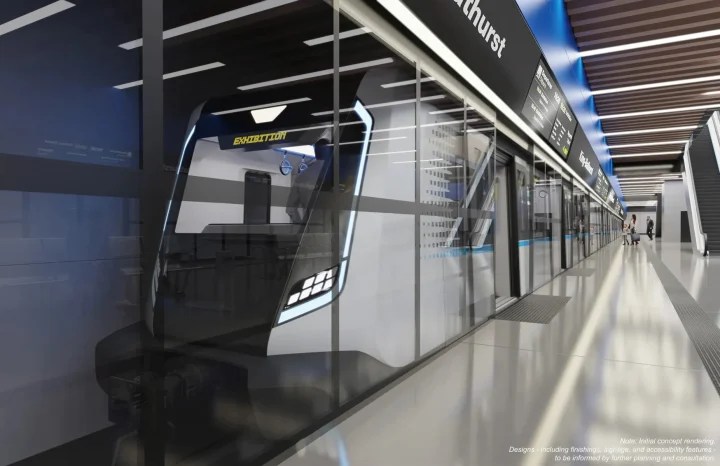Ontario Opposition MPPs are raising alarm bells as the cost of the Ford government’s signature subway project balloons.

A series of November updates from Infrastructure Ontario show the estimated cost of the Ontario Line in Toronto sits as high as $19 billion — an increase of more than 70 per cent over initial estimates.
The Ontario Line, which is set to run from the Ontario Science Centre to Ontario Place, was unveiled by Premier Doug Ford in 2019 as part of a $28.9 billion subway expansion plan.
The project broke ground in the March but now faces issues with spiralling costs.
“The Minister of Transportation needs to explain to Ontarians why these projects are already falling behind and why subway costs have more than doubled under the Ford government,” Ontario NDP infrastructure critic Jennifer French said.
The Ontario Line was born from a power struggle between the City of Toronto and the province around subway expansion in the city during Ford’s first term as premier.
“Our government is investing in transportation to bring relief and new opportunities to transit users and commuters,” Ford said in an April 2019 press release.
That same press release said the project would cost $10.9 billion and be completed by 2027.
However, a trickle of new documents from Infrastructure Ontario shows the cost of the project could be almost double its initial estimate.
On Nov. 9, Infrastructure Ontario announced a contract worth $6 billion had been awarded to the Ontario Transit Group for the design, construction and financing of southern stations and tunnels.
A contract for stations and tunnels for the northern portion of the line has not yet been awarded. Costs were estimated at between $2 and $4 billion in a November update.
On Nov. 17, a contract was awarded for trains, systems, operations and maintenance to run the line itself for 30 years. That contract went to Connect 6ix with a value of $9 billion.
In total, the contracts amount to between $17 and $19 billion, depending on the final value of the northern portions of the line.
Those costs would amount to an average cost of more than $1 billion for each of the Ontario Line’s 16 kilometres.
The NDP blamed the escalating cost on the public-private (P3) model used to deliver many infrastructure projects in Ontario.
Under P3s, private companies carry out construction, design and often financing for public projects. Some projects, including the Ontario Line, also include clauses that require private companies to run and maintain the infrastructure.
“Ontario’s P3 approach allows projects to be delivered more efficiently and more cost effectively than traditional procurement,” Infrastructure Ontario’s website says.
“P3 also protects taxpayers from cost overruns by transferring project risks to the party with the expertise, experience and ability to handle that risk best.”
That is not the view of the official Opposition.
“Both Liberal and Conservative governments have too long favoured public-private partnerships, which are well-known for unexplained delays and escalating costs,” said French.

Toronto Centre NDP MPP and former councillor Kristyn Wong-Tam demanded increased accountability.
“We are calling on this government to increase accountability and oversight over Metrolinx and Infrastructure Ontario, so transit riders won’t suffer high transit fares and poorer service while P3 financiers and private consultants get rich,” Wong-Tam said.
Global News reached out to both Metrolinx and the Ministry of Transport for comment.
“Construction projects worldwide are facing economic challenges with rising inflation costs and supply chain shortages,” a spokesperson for the Ministry of Transport said in a statement. “This is not unique to the Ontario Line, or any other critical infrastructure projects our government is delivering. As all our transit projects move forward, we will continue to ensure that taxpayers receive the best value possible.”
A response from Metrolinx was not received in time for publication.





Comments